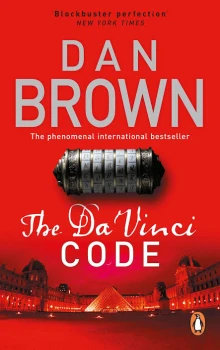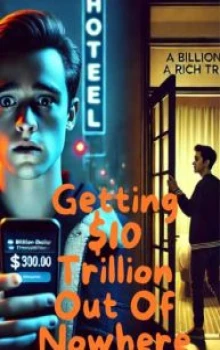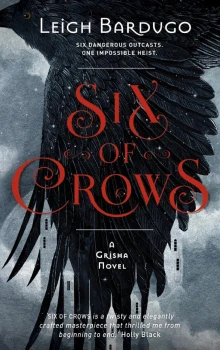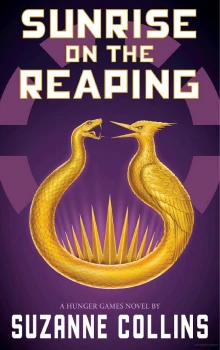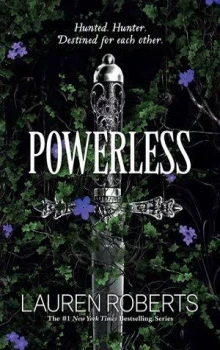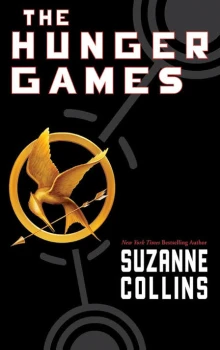Langdon's Mickey Mouse wristwatch read almost seven-thirty when he emerged from
the Jaguar limousine onto Inner Temple Lane with Sophie and Teabing. The threesome
wound through a maze of buildings to a small courtyard outside the Temple Church. The
rough-hewn stone shimmered in the rain, and doves cooed in the architecture overhead.
London's ancient Temple Church was constructed entirely of Caen stone. A dramatic,
circular edifice with a daunting facade, a central turret, and a protruding nave off one
side, the church looked more like a military stronghold than a place of worship.
Consecrated on the tenth of February in 1185 by Heraclius, Patriarch of Jerusalem, the
Temple Church survived eight centuries of political turmoil, the Great Fire of London,
and the First World War, only to be heavily damaged by Luftwaffe incendiary bombs in
1940. After the war, it was restored to its original, stark grandeur.
The simplicity of the circle, Langdon thought, admiring the building for the first time.
The architecture was coarse and simple, more reminiscent of Rome's rugged Castel
Sant'Angelo than the refined Pantheon. The boxy annex jutting out to the right was an
unfortunate eyesore, although it did little to shroud the original pagan shape of the
primary structure.
“It's early on a Saturday,” Teabing said, hobbling toward the entrance, “so I'm
assuming we won't have services to deal with.”
The church's entryway was a recessed stone niche inside which stood a large wooden
door. To the left of the door, looking entirely out of place, hung a bulletin board covered
with concert schedules and religious service announcements.
Teabing frowned as he read the board. “They don't open to sightseers for another
couple of hours.” He moved to the door and tried it. The door didn't budge. Putting his
ear to the wood, he listened. After a moment, he pulled back, a scheming look on his face
as he pointed to the bulletin board. “Robert, check the service schedule, will you? Who is
presiding this week?”
Inside the church, an altar boy was almost finished vacuuming the communion kneelers
when he heard a knocking on the sanctuary door. He ignored it. Father Harvey Knowles
had his own keys and was not due for another couple of hours. The knocking was
probably a curious tourist or indigent. The altar boy kept vacuuming, but the knocking
continued. Can't you read? The sign on the door clearly stated that the church did not
open until nine-thirty on Saturday. The altar boy remained with his chores.
Suddenly, the knocking turned to a forceful banging, as if someone were hitting the
door with a metal rod. The young man switched off his vacuum cleaner and marched
angrily toward the door. Unlatching it from within, he swung it open. Three people stood
in the entryway. Tourists, he grumbled. “We open at nine-thirty.”
The heavyset man, apparently the leader, stepped forward using metal crutches. “I am
Sir Leigh Teabing,” he said, his accent a highbrow, Saxonesque British. “As you are no
doubt aware, I am escorting Mr. and Mrs. Christopher Wren the Fourth.” He stepped
aside, flourishing his arm toward the attractive couple behind them. The woman was soft-
featured, with lush burgundy hair. The man was tall, dark-haired, and looked vaguely
familiar.
The altar boy had no idea how to respond. Sir Christopher Wren was the Temple
Church's most famous benefactor. He had made possible all the restorations following
damage caused by the Great Fire. He had also been dead since the early eighteenth
century. “Um . . . an honor to meet you?”
The man on crutches frowned. “Good thing you're not in sales, young man, you're not
very convincing. Where is Father Knowles?”
“It's Saturday. He's not due in until later.”
The crippled man's scowl deepened. “There's gratitude. He assured us he would be
here, but it looks like we'll do it without him. It won't take long.”
The altar boy remained blocking the doorway. “I'm sorry, what won't take long?”
The visitor's eyes sharpened now, and he leaned forward whispering as if to save
everyone some embarrassment. “Young man, apparently you are new here. Every year
Sir Christopher Wren's descendants bring a pinch of the old man's ashes to scatter in the
Temple sanctuary. It is part of his last will and testament. Nobody is particularly happy
about making the trip, but what can we do?”
The altar boy had been here a couple of years but had never heard of this custom. “It
would be better if you waited until nine-thirty. The church isn't open yet, and I'm not
finished hoovering.”
The man on crutches glared angrily. “Young man, the only reason there's anything left
of this building for you to hoover is on account of the gentleman in that woman's
pocket.”
“I'm sorry?”
“Mrs. Wren,” the man on crutches said, “would you be so kind as to show this
impertinent young man the reliquary of ashes?”
The woman hesitated a moment and then, as if awaking from a trance, reached in her
sweater pocket and pulled out a small cylinder wrapped in protective fabric.
“There, you see?” the man on crutches snapped. “Now, you can either grant his dying
wish and let us sprinkle his ashes in the sanctuary, or I tell Father Knowles how we've
been treated.”
The altar boy hesitated, well acquainted with Father Knowles' deep observance of
church tradition . . . and, more importantly, with his foul temper when anything cast this
time-honored shrine in anything but favorable light. Maybe Father Knowles had simply
forgotten these family members were coming. If so, then there was far more risk in
turning them away than in letting them in. After all, they said it would only take a minute.
What harm could it do?
When the altar boy stepped aside to let the three people pass, he could have sworn Mr.
and Mrs. Wren looked just as bewildered by all of this as he was. Uncertain, the boy
returned to his chores, watching them out of the corner of his eye.
Langdon had to smile as the threesome moved deeper into the church. “Leigh,” he
whispered, “you lie entirely too well.”
Teabing's eyes twinkled. “Oxford Theatre Club. They still talk of my Julius Caesar. I'm
certain nobody has ever performed the first scene of Act Three with more dedication.”
Langdon glanced over. “I thought Caesar was dead in that scene.”
Teabing smirked. “Yes, but my toga tore open when I fell, and I had to lie on stage for
half an hour with my todger hanging out. Even so, I never moved a muscle. I was
brilliant, I tell you.”
Langdon cringed. Sorry I missed it.
As the group moved through the rectangular annex toward the archway leading into
the main church, Langdon was surprised by the barren austerity. Although the altar
layout resembled that of a linear Christian chapel, the furnishings were stark and cold,
bearing none of the traditional ornamentation. “Bleak,” he whispered.
Teabing chuckled. “Church of England. Anglicans drink their religion straight.
Nothing to distract from their misery.”
Sophie motioned through the vast opening that gave way to the circular section of the
church. “It looks like a fortress in there,” she whispered.
Langdon agreed. Even from here, the walls looked unusually robust.
“The Knights Templar were warriors,” Teabing reminded, the sound of his aluminum
crutches echoing in this reverberant space. “A religio-military society. Their churches
were their strongholds and their banks.”
“Banks?” Sophie asked, glancing at Leigh.
“Heavens, yes. The Templars invented the concept of modern banking. For European
nobility, traveling with gold was perilous, so the Templars allowed nobles to deposit gold
in their nearest Temple Church and then draw it from any other Temple Church across
Europe. All they needed was proper documentation.” He winked. “And a small
commission. They were the original ATMs.” Teabing pointed toward a stained-glass
window where the breaking sun was refracting through a white-clad knight riding a rose-
colored horse. “Alanus Marcel,” Teabing said, “Master of the Temple in the early twelve
hundreds. He and his successors actually held the Parliamentary chair of Primus Baro
Angiae.”
Langdon was surprised. “First Baron of the Realm?”
Teabing nodded. “The Master of the Temple, some claim, held more influence than the
king himself.” As they arrived outside the circular chamber, Teabing shot a glance over
his shoulder at the altar boy, who was vacuuming in the distance. “You know,” Teabing
whispered to Sophie, “the Holy Grail is said to once have been stored in this church
overnight while the Templars moved it from one hiding place to another. Can you
imagine the four chests of Sangreal documents sitting right here with Mary Magdalene's
sarcophagus? It gives me gooseflesh.”
Langdon was feeling gooseflesh too as they stepped into the circular chamber. His eye
traced the curvature of the chamber's pale stone perimeter, taking in the carvings of
gargoyles, demons, monsters, and pained human faces, all staring inward. Beneath the
carvings, a single stone pew curled around the entire circumference of the room.
“Theater in the round,” Langdon whispered.
Teabing raised a crutch, pointing toward the far left of the room and then to the far
right. Langdon had already seen them.
Ten stone knights.
Five on the left. Five on the right.
Lying prone on the floor, the carved, life-sized figures rested in peaceful poses. The
knights were depicted wearing full armor, shields, and swords, and the tombs gave
Langdon the uneasy sensation that someone had snuck in and poured plaster over the
knights while they were sleeping. All of the figures were deeply weathered, and yet each
was clearly unique—different armory pieces, distinct leg and arm positions, facial
features, and markings on their shields.
In London lies a knight a Pope interred.
Langdon felt shaky as he inched deeper into the circular room.
This had to be the place.
